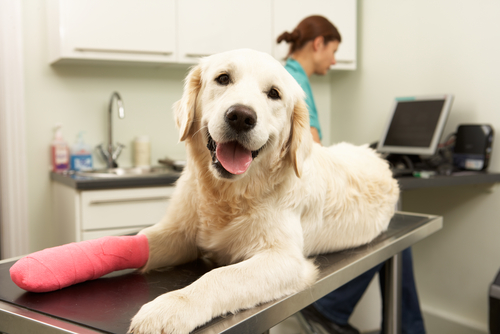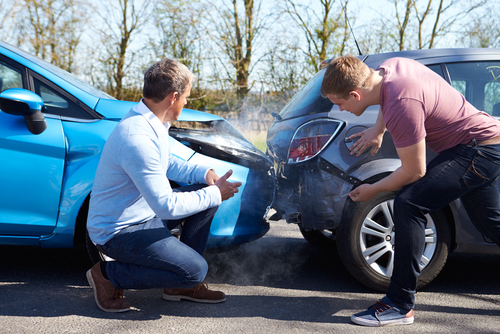
Nine Insurance Products You Should Have And Can Afford
One thing many consumers overlook is the importance of insurance. Buying insurance is not like buying other products as you are not buying something you can see or touch, but a promise that if something goes terribly wrong you are protected. Lenders require insurance on your home or auto as it protects their investment until your loan is paid in full. Although these are critical types of insurance, there are others that are just as important whose cost may be much lower than you think.
1. Life Insurance
One area where people are often under-insured is life insurance. In a recent survey, about 40 percent of people in the United States had no life insurance while of those that did, 20 percent felt they did not have enough. In addition, many consumers overestimate how much life insurance costs with millennials believing that the average life insurance policy costs five times what it actually does. Life insurance protects your family should something happen to you. The proceeds can be used to pay off a mortgage, other debts or cover college tuition. It can also provide peace-of-mind to you that when you pass away, your loved ones will be financially secure as long as your coverage amount is high enough.

2. Credit “Insurance”
Although there is not really credit “insurance,” there are protections you can purchase that will help protect your credit. Credit protection services regularly review your credit report and notify you of anything suspicious so you can address it immediately, before it becomes an issue. You can also check your own credit report regularly, further “insuring” that your credit rating remains protected.

3. Pet Insurance
If you own a pet, you know how expensive veterinarian bills can be. In fact, an emergency trip to the vet can cost over $1,000. If your pet develops an ongoing condition, costs can be even higher. Pet insurance can help offset the costs of those unexpected bills and the premiums are actually not as high as you may think. Younger dogs may have lower premiums than older dogs and some companies offer discounts if you have multiple pets. Very few people can pay a vet bill of $1,000, $2,000 or more should a pet become suddenly ill or injured which is why pet insurance can help you cover those costs in order to get your pets healthy again.

4. Renters Insurance
Too often, people who rent don’t think about insuring their property. Even if you are just starting out, sitting on furniture that belonged to your parents, your property has a value. If there is a fire or someone breaks in and steals something, do you have the money to replace even your secondhand furnishings? What many people may not know is that your landlord’s property insurance does not necessarily cover your personal property. Renters insurance also covers you should someone fall and injure themselves in your rented property. If your rental is damaged to the point you cannot live there, renters insurance also covers the cost of a place to stay until your home is inhabitable again. Renters insurance is actually inexpensive depending on what coverage you choose.

5. Travel Insurance
Planning for a long-awaited vacation is exciting but no matter how hard you plan, things can go wrong. You could become ill, a family member could have an emergency or another catastrophe could occur that means you must cancel or postpone your trip. In some cases, this could mean losing the cost of your airline, a penalty for late cancellation of your hotel room or other costs that you may not be able to cover. Travel insurance is the best way to protect you from the unexpected. This type of insurance may cover your flight or hotel costs as well as other fees you may incur should you need to cancel or postpone. The insurance is usually very inexpensive compared to what you may lose if you must cancel without it.

6. Car Insurance
If you have a lien on your car, your lender requires you to have full automobile insurance coverage in order to protect their interests in the car. But what if you have paid the car in full and don’t need full coverage? Too often, once the car is paid in full, many automobile owners drop collision and comprehensive coverage in order to save money. However, if you could not afford to replace your vehicle if it is totaled, you may not want to drop your comprehensive or collision insurance. This insurance also covers you if the other person has no insurance or if you are deemed even partially at fault in an accident.

7. Identity “Insurance”
Although there is not technically “insurance” that covers your identity, there are services you can purchase that will help keep you safe. People are far to trusting when it comes to their identity, especially when they travel. More than 20 percent of people report that they have had private information stolen while traveling and 40 percent of those have been the victim of identity theft. An identity theft protection service will protect you should anything unusual happen on your accounts or in your credit report, acting as a type of “insurance” to cover you from losses.

8. Home Warranty
Your furnace stops working on a Saturday and the repairman informs you that you need a replacement. Your refrigerator decides to quit working just before a huge celebration at your home. You have a house full of visitors when your water heater decides to go out. All of these repairs cost money and, if your home is older, these costs can be very expensive. A home warranty protects you against these unexpected costs, covering areas of your home that you rarely think about.

9. Health Insurance
Health insurance is something everyone understands they need but often think they cannot afford. If you do not receive health insurance through your employer, you are required under the law to purchase it on your own. The fact is that there are options for health insurance that may not be expensive. You can choose higher deductibles or co-payments to lower the premiums. You can also find some discount insurance plans that will provide you with coverage but at a lower cost.
